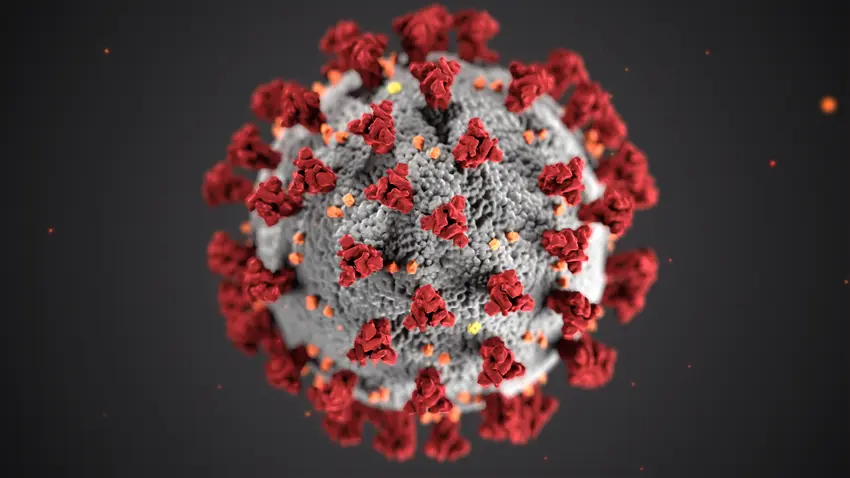The International Microsimulation Association (IMA), in collaboration with the Centre for Microsimulation and Policy Analysis (CeMPA); the Institute for Employment Research (IAB); the Luxembourg Institute for Social and Economic Research (LISER); the National Centre for Social and Economic Modelling (NATSEM); and the Urban Institute are pleased to announce an online conference on 2 December, 2020 on microsimulation modelling of policy responses to COVID-19.
The aim of this online conference is to share methods on modelling policy responses to COVID-19. If we share the methods being used internationally, we can learn from each other, and help researchers in other countries understand better the impacts of COVID and the shut-down on their country, and what policies might best help in the recovery.
The conference will happen over the full day, and sessions have been planned to be at reasonable times in the country where the presenter is based. However, this does mean that sessions may be overnight; or early morning in your country.
To allow everyone to see the sessions, they will be recorded where possible, and will be made available on the IMA website, where the Author’s agree. Only the presentations will be made available – the questions and discussion after the sessions will not be recorded. Presentations will be 20 minutes, with three presentations in each session. Questions and discussion will be handled by the convenor at the end of the session. Each session will go for 2 hours, and there will then be a 1 hour break before the next session.
Papers presented at the workshop will be considered for a special Covid-19 issue of the International Journal of Microsimulation.
We look forward to hearing from you at sessions you can make, and hope that this conference gives the microsimulation community an opportunity to learn about international developments in measuring the impacts of COVID-19.
Date: 2 December (going into morning of 3rd December for Australia)
Session Schedule
Session 1. Combining data (Convenor: Aus - Jinjing Li)
- Nowcasting the distributional impact of the COVID-19 crisis: how does it compare with the 2009 financial crisis?* by Denisa M. Sologon, Cathal O’Donoghue, Iryna Kyzyma, Jules Linden, Jinjing Li, Frédéric Docquier, Raymond Wagener”
- The impact of Covid-19 and policy response on Australian income distribution and poverty by Jinjing Li, Yogi Vidyattama, Hai Anh La, Riyana Miranti, Denisa M Sologon”
- COVID-19 and the distributional effects of increased unemployment in Sweden by Hans Sacklen”
Session 2. Dynamic Modelling (Convenor: Aus - Rob Tanton)
- COVID-Town: An Integrated Economic-Epidemiological Agent-Based Model by Patrick Mellacher”
- The Emergency Family Income (IFE) in Argentina: could it become a permanent safety net? by Leonardo Calcagno”
- How DWP adapted its dynamic microsimulation approach to meet the Challenges of Covid-19 by Dave Pankhurst, Tim Knight”
Session 3. EuroMod (Convenor: UK - Matteo Richiardi)
- The impact of the COVID19-crisis on household incomes in Belgium by Koen Decancq, Andre Decoster, Sarah Kuypers, Sarah Marchal, Jonas Vanderkelen, Toon Vanheukelom, Wim Van Lancker, Lena Van Meensel, Gerlinde Verbist”
- The COVID19 crisis response helps the poor: The distributional and budgetary consequences of the UK lockdown by Patryk Bronka, Diego Collado, Matteo Richiardi”
- Welfare resilience in the immediate aftermath of the COVID-19 outbreak in Italy by Francesco Figari, Carlo V. Fiorio”
Session 4. Health Modelling (Convenor: US - Bryan Tysinger)
- Modelling the epidemiological and economic impacts of COVID-19 ‘lockdown’ on air pollution in the London local authorities of Lambeth and Southwark by Lise Retat, Hannah Graff, Anna Tarkington, Michael Xu, Timothy Coker, Laura Webber”
- Enhanced Population Estimates for Dynamic Spatial Microsimulation of Disease Spread by Nik Lomax, Karyn Morrissey, Jamil Nur”
- Quantifying the impact of excess deaths in the Covid-era using dynamic microsimulation by Hanke Heun-Johnson, Darius Lakdawalla, Julian Reif, Bryan Tysinger”
Session 5. Tax/Transfer Modelling (Convenor: EU - Kerstin Bruckmeier)
- COVID-19 Crisis in Germany: Labour deman, Distributional and Fiscal effects by Kerstin Bruckmeier,Andreas Peichl, Martin Popp, Jürgen Wiemers, Timo Wollmershauser”
- Using the Social Policy Simulation Database and Model (SPSD/M) to model income support policies during COVID-19 by Shawna Brown, Jackson Chung, Chantal Hicks, Laurie Plager”
- COVID-19 JobKeeper and JobSeeker impacts on poverty and housing stress under current and alternative economic and policy scenarios by Ben Phillips”
Session 6. Tax/Transfer Modelling (Convenor: US - Melissa Favreault)
- Estimating the Impacts of Pandemic Response Policies on U.S. Poverty: Providing Real-Time Input into the Policy Debate with the ATTIS Microsimulation Model by Linda Giannarelli, Laura Wheaton, Kevin Werner, Ilham Dehry, and Greg Acs”
- The Impact of COVID-19 Epidemic on Poverty in rural China by Peng Zhan, Shi Li”
- Modelling the distributional impact of the Covid19 Crisis in Russia: application of the microsimulation model RUSMOD by Mikhail Matytsin, Daria Popova and Samuel Freije “
Session Links and Recordings
The recordings, if available, can be viewed here.
- Session 1 (time): MS Teams Link (no registration/password)
- Session 2 (time): MS Teams Link (no registration/password)
- Session 3 (time): Zoom link (Meeting ID: 961 9689 3955 Password: 427134)
- Session 4 (time): Zoom link (Meeting ID: 971 7700 4346 Password: 520930)
- Session 5 (time): Zoom link (Meeting ID: 960 0592 3325 Password: 924528) (link to the session-specific data protection declaration)
- Session 6 (time): Zoom link(Meeting ID: 879 2998 9556 Password: 179050)
Selected papers from the workshop will be published as a special issue of the International Journal of Microsimulation. Submissions can be made through the online submission management system before February 28, 2021 - make sure you cite the Special Covid-19 issue in your accompanying letter.”
